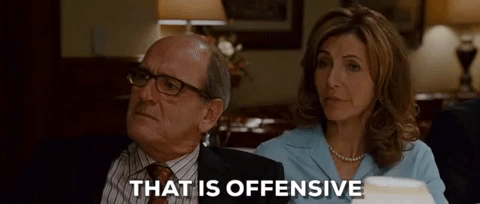When I first visited the SUNY Fredonia campus as a sophomore in high school, I felt at home almost immediately. I decided within a day that it was where I really wanted to be. There was a certain air of general acceptance that I could sense as I observed how the students and faculty interacted with each other, something I hadn't ever felt in the halls of my high school. I had essentially just begun to try and understand my gender identity and felt very vulnerable in that regard, so I decided that the acceptance I saw was what I wanted to surround myself with. By the time I graduated, I thought I was completely ready to start the next chapter at SUNY Fredonia with the new identity I had started to create for myself, but that wasn’t exactly the case.
All I experienced at first was hesitation, doubt, and anxiety. This started a few weeks before classes were supposed to begin, when I emailed my professors to notify them of my preferred name and pronouns. It took me about an hour and a half to send five emails. It should have been easy—I had a template that I used to thoroughly and succinctly communicate the purpose of my message, and my professors’ email addresses were easy to locate. Even so, I sat in front of my computer screen, reading what I’d written over and over, absolutely terrified to press ‘send’. Eventually I managed it, and I felt overwhelming relief when I received positive replies, but this did nothing to assuage the queasy feeling I got in my stomach when attendance was taken on the first day of classes. What if they called my birth name instead? What if for some reason they mispronounced my preferred name?
I used a nickname in the dorm during my first year on campus, and that complicated things, as well. The name I used in my residence hall was different than the name I used in class, which in turn was different than my legal name (which I still had to use way more than I’d expected to). It was as though I had actually split myself into three different people, and each of these people had their own relationships with whoever I came in contact with on a daily basis. To me, each of these separate identities also represented a different stage of my personal transition, so every time I had to use my legal name and nickname it was like wiping away all of the progress I had made establishing myself as who I really wanted to be. The best way to combat these feelings was by remembering that one day I won’t have to use a name purely for legal purposes, or use a nickname to feel slightly more at ease.
Passing in the classroom was difficult at times, too. There were plenty of days when I was nervous to leave my room because the idea of being perceived as someone I wasn’t was so upsetting to me. As many times as I felt this way, though, it helped me immensely to remember that passing completely isn’t always necessary for everyone. Clothes, hair, makeup—none of these things dictate gender. This didn't completely alleviate the dysphoria and discomfort I experienced when I thought I felt people staring at me, but it did provide me with some encouragement. Sometimes the best I could do was correct pronouns (sometimes multiple times with the same people) and tell myself that the way other people might see me didn't affect how I felt about myself and my gender.
The bottom line is, there is no perfect solution. I thought going away to college in a new town where no one knew me would be the answer to my problems, but as with most things, it wasn’t that simple. What I thought would be a clean shift has been messy and, at times, incredibly difficult, but I’m making more progress with each passing day. Last week I started my sophomore year at SUNY Fredonia. I don’t use my nickname in the dorms anymore. I don’t let it slide when I’m addressed with the wrong pronouns. I became involved with the school’s pride alliance group in my freshman year and made some friends there.
I’ve stopped being so apologetic about my gender identity and I’ve started to make more of an effort to embrace it, instead. I know that being trans won’t ever be a walk in the park, whether it’s because of societal expectations or expectations I have for myself, but living somewhere new and building up a support system has been the first (and biggest) step to feeling comfortable in my own skin.


























